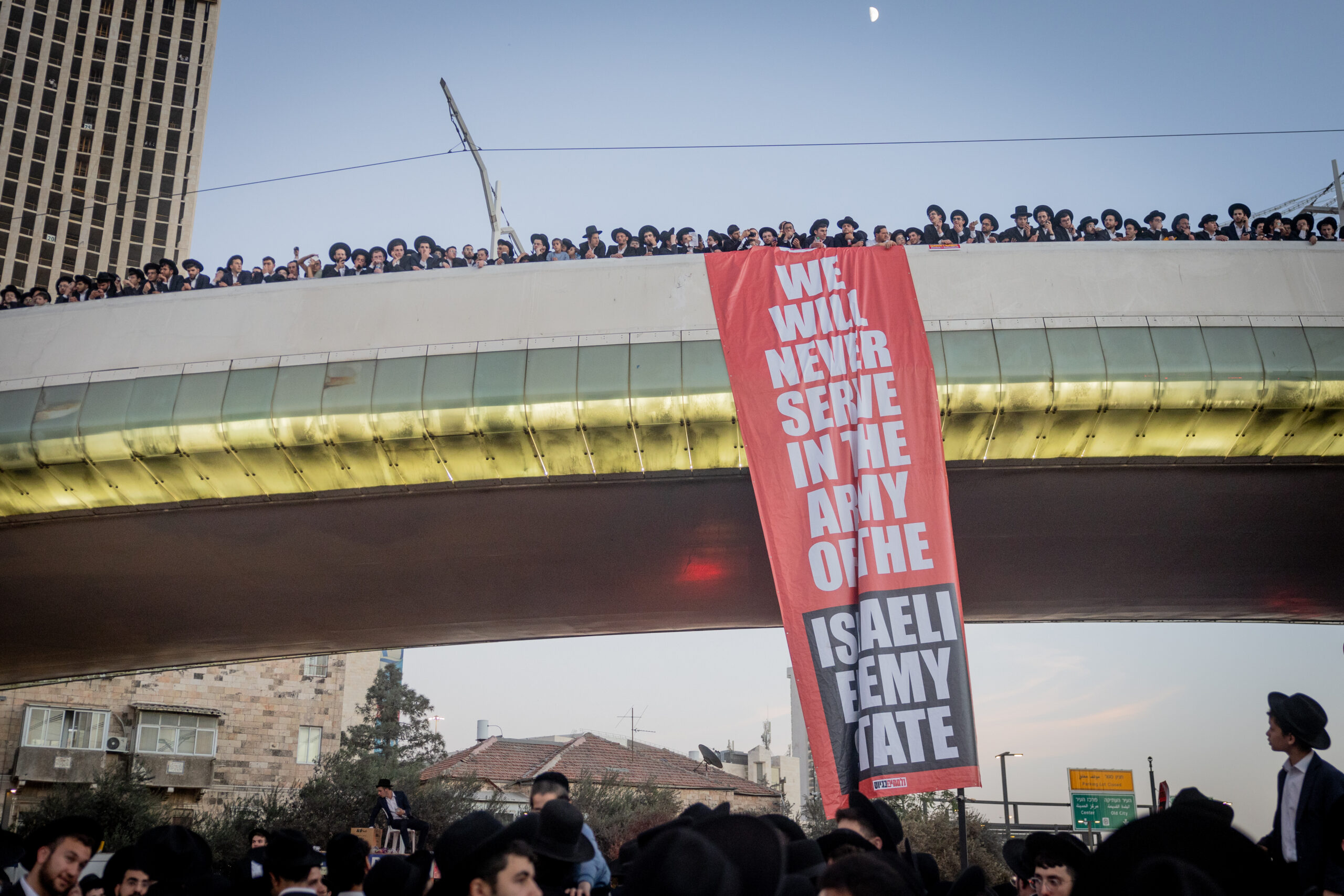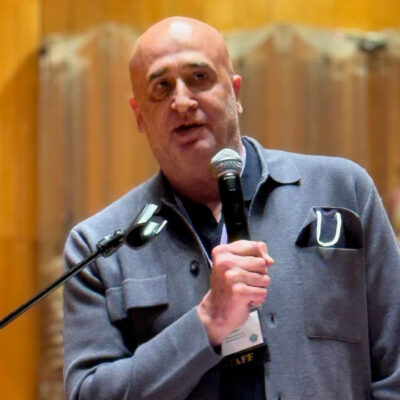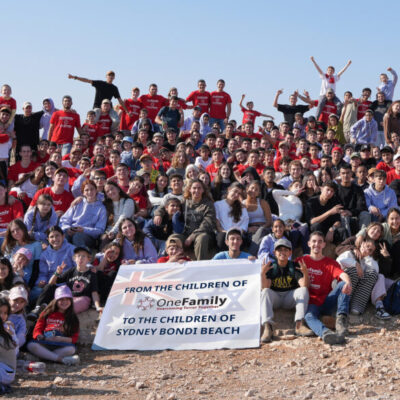Opinion
SCHOOL TIES
In uncertain times, Jewish families seek community in Jewish day schools
Since Oct. 7, so much of what we thought we knew about Jewish life in North America has been called into question, and the impact on ourselves as individuals, as Jews and as a larger community will continue to evolve in the months and years to come.
If the massacre on 10/7 and the subsequent war mark the “end of the Golden Age for American Jews,” as Franklin Foer recently wrote in The Atlantic, what does this mean for Jewish day schools, perhaps the “gold standard” of Jewish education? In this time of crisis, as more people are seeking connection and community, what are the implications for Jewish day schools and yeshivas, which have been delivering just that for decades?

Courtesy/Solomon Schechter Day School of Greater Hartford
Like all Jewish institutions, day schools across North America have felt the aftershocks of 10/7. In many schools, alumni and family members are proudly serving in the IDF. Some Israelis in our schools returned to join their reserve units or to volunteer; and tens of thousands of our students have traveled to attend rallies locally and in Washington, D.C., where the college student speakers were predominantly day school alumni. Many schools welcomed Israeli families seeking refuge from the war. Finally, as has been reported widely, day schools from Vancouver to Philadelphia to Texas are experiencing unexpected increases in inquiries for enrollment.
According to Prizmah’s survey of 110 schools in the US and Canada, 4 in 10 schools reported receiving inquiries for midyear transfers from public or independent schools. In terms of enrollment for 2024-2025, 35% of schools have reported an increase in inquiries from the previous year’s numbers during the same time period, indicating increased interest for the upcoming school year. The top reason schools reported for inquiries by public school and independent school families was the desire to have their child or children in a Jewish environment; the next most common reasons were fear of antisemitism and disappointment with the response from their current school around the war in Israel. The well-documented increase in antisemitic incidents has become the experience of families in public and independent schools in classrooms, on sports fields and beyond. In some cases, prospective parents are reporting direct examples of child-to-child or adult-to-child antisemitic provocations.
What stands out about the increased inquiries reported by Jewish day schools, across geography and denomination, is the unusual number of families interested in mid-year admission and the number of families exploring “lateral transfer,” meaning joining the school community at a grade level outside of the typical entry points such as kindergarten, grade six or grade nine. Some professionals we spoke with called the number of these unique inquiries “unheard of,” with most of the inquiries coming from families not currently enrolled in a Jewish day school. Additionally, though many of the students welcomed from Israel temporarily have returned home, existing communities with substantial Israeli populations, such as areas with strong high-tech or medical industries, are attracting more Israeli emigres who are newly prioritizing Jewish day schools as a place where they can feel connected and their children can thrive and be proudly Jewish.
Some schools have already determined that they don’t have the capacity to accept new students, especially in historically static grades (grades that don’t typically see transfers in because they are not typical entry points for students), while others are struggling to balance the needs of current students with prospective families who assume there will be a place for their children. Some of the challenges associated with lateral and unexpected inquiries include maintaining the strong culture of a school with an influx of new families, providing transfer students with academic support, and the more obvious concerns of space and staffing. Heads of school and admission professionals must weigh and prioritize these things alongside budget, culture and future challenges that rapid expansion can pose, especially if not sustained.
Day schools are centers of community and connection — especially in challenging times, as we recently saw with COVID, and now, as professionals report many prospective parents are newly prioritizing Jewish connection and identity for their family. As word spreads about how our schools are meeting the needs of new families (one slogan I have heard is “No Hebrew, no problem”), we may anticipate even more interest. Funders will have new opportunities to invest in our schools during this period of expansion to ensure schools can meet this moment and welcome new families while still providing excellence and community for those who have been steadfast in the day school choice for a long time.
A sudden change in enrollment numbers can thwart existing strategic plans, especially around physical space. We learned from one school that was seeing a spike in applications for pre-K and kindergarten that they are quickly adding an in-class bathroom in order to modify an existing classroom for the needs of younger students. Whether these spikes will be sustained over time puts board members and professionals in the difficult position of deciding if and how to identify priorities, secure new investments and shift their long-term facility plans and staffing models. Only through investment from funders can the day school community expand to welcome this growth and ensure it continues.
Even before the events of Oct. 7, all signs have pointed to sustained growth for Jewish day schools for the past four years. This moment highlights what Jewish day schools have always been about: positive Jewish identity, a deep sense of community — and a deep connection to Israel and Israelis that has perhaps always been assumed but less articulated.
The increasing prominence of Jewish day schools, no longer reserved just for the Orthodox or children of clergy, has already generated greater responsiveness from the philanthropic community. If indeed we are entering a new stage of American Jewish history, those of us who are dedicated to Jewish day schools recognize that we have a critical role to play. We know that day school alumni assume leadership positions and use their knowledge and sense of community to propel Jewish life forward. Day schools are the answer to strong Diaspora communities beyond the war; and with ongoing and increasing investment, we will be able to expand access for future generations, creating lifetimes of Jewish connection.
Paul Bernstein is the CEO of Prizmah: Center for Jewish Day Schools.

 Add EJP on Google
Add EJP on Google










